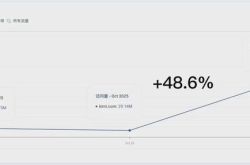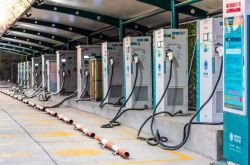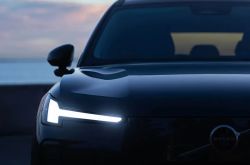Trump returns to power, who's crying and who's laughing
![]() 11/11 2024
11/11 2024
![]() 650
650
For the highly sensitive global automotive industry, the turmoil caused by Trump's return may just be beginning.
With the conclusion of the 2024 U.S. presidential election, Trump's return to the White House is a foregone conclusion. During the campaign, the focal points of debate between the two parties included climate and clean energy issues, as well as the future development direction of related industries, including the automotive industry, which are now about to be settled.
During the election, Trump continued to strongly advocate for protecting domestic manufacturing in the United States, especially the automotive industry. Industry insiders believe that after his election, he will largely continue the policies of his previous term but will also learn from some of the failures of his previous term. However, for the highly sensitive global automotive industry, the turmoil caused by Trump's return may just be beginning.
Start from scratch
According to The New York Times on August 8, local time, Trump's climate and environmental transition team is considering relocating the headquarters of the U.S. Environmental Protection Agency (EPA) from Washington and making major reforms.
The report quoted six sources, stating that the transition team has prepared a series of executive orders and announcements on climate and energy, including the United States withdrawing from the Paris Agreement again.
During his previous term, Trump's energy policy was notably characterized by its emphasis on fossil fuels, including coal, oil, and natural gas. His core objectives were to pursue U.S. energy independence and promote economic growth and employment, embodying his governing philosophy of "America First."
The Trump administration also achieved several important policy outcomes, including the United States becoming a net energy exporter for the first time in nearly 70 years; becoming the world's largest producer of oil and natural gas at the time; and since January 2017, liquefied natural gas (LNG) exports have increased fivefold, reducing the U.S. trade deficit by over $10 billion due to LNG exports.
However, soon after the Biden administration took office, it overturned Trump's climate opposition actions.
Over the past four years, Biden has emphasized the importance of clean energy and addressing climate change, and has introduced a series of ambitious climate strategies, including announcing the United States' return to the Paris Climate Agreement.
The Biden administration has set a goal of "net-zero emissions" by 2050 and proposed a $2 trillion climate action plan for investments in infrastructure, clean energy, and other areas.
In April of the same year, the United States set a goal of achieving a zero-carbon pollution power system by 2035, which is an important part of achieving a 50%-52% reduction in carbon emissions by 2030 and net-zero emissions by 2050. Through the transition to renewable energy, the United States plans to achieve carbon-free power generation by 2035. In November, Biden signed the Bipartisan Infrastructure Law, and he promised to build 500,000 charging stations in the United States by 2030 to promote the development of electric vehicles.
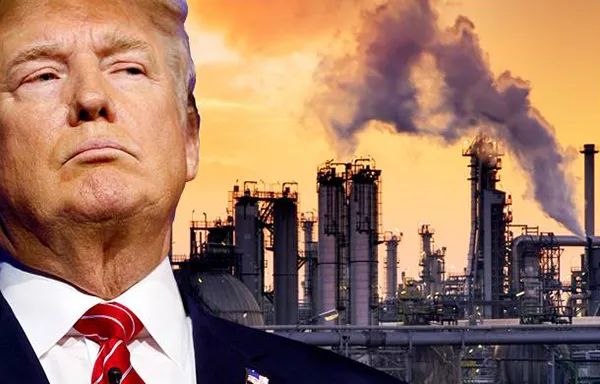
Furthermore, Biden's Infrastructure Plan proposes investing $174 billion in the electric vehicle industry, including rebates and tax incentives for car buyers to encourage American consumers to purchase electric vehicles. This plan aims to rebuild aging U.S. infrastructure, promote electric vehicles and clean energy, and create job opportunities.
In Trump's view, the Biden administration's return to the Paris Agreement not only "damages" the U.S. economy and puts the United States in a "permanently disadvantaged and impoverished position" but also severely impacts the U.S. automotive industry, causing the outflow of the automotive manufacturing industry.
During the campaign, Trump repeatedly stated that he would take measures to overturn or completely abolish this policy. Trump has made no secret of his disdain for electric vehicles, claiming that they are ineffective and that the transition to electric vehicles is a "job killer" that harms the interests of American auto workers.
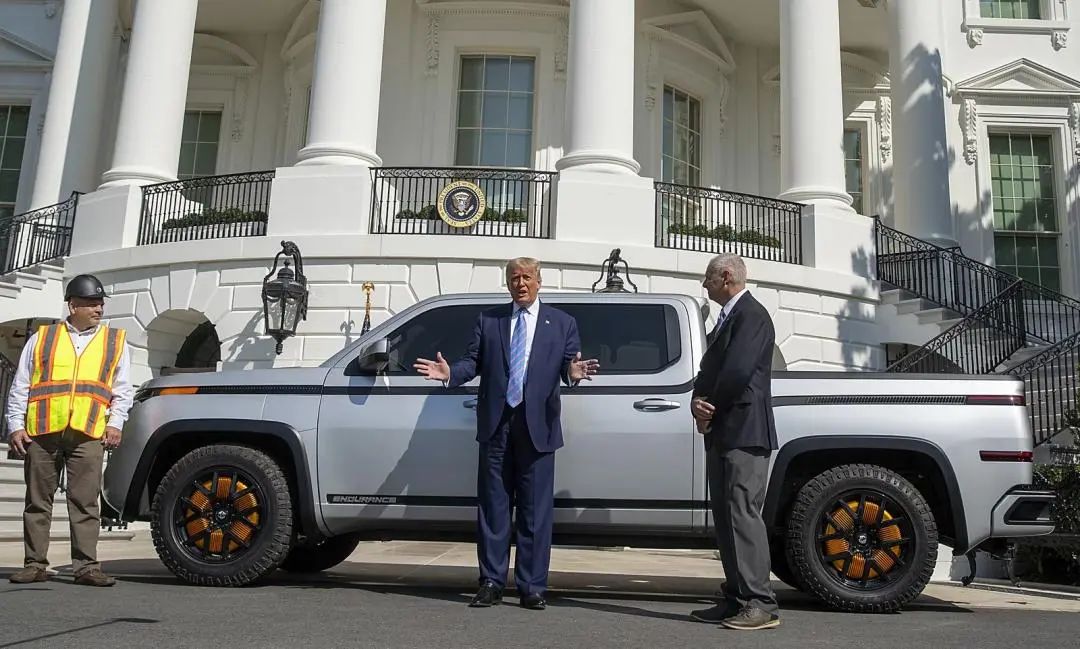
On the other hand, Trump is also a typical climate skeptic who believes that climate change is a "green scam." Instead, he advocates for "maximizing fossil fuel production." Early in his previous term, he revoked many environmental regulations introduced during Obama's presidency, including "loosening" fuel economy and tailpipe emission standards for new vehicles and prohibiting California from setting stricter new vehicle emission standards.
Therefore, it is not difficult to imagine that Trump will quickly overturn or revoke a series of environmental policies, such as the new vehicle emission standards of the Biden administration, during his new term.
So Trump's re-election may be a major setback for climate protection.
The climate news website Carbon Brief previously analyzed that from Trump's victory to 2030, U.S. greenhouse gas emissions will increase by more than 4 billion tons compared to 2005 levels. The additional emissions during Trump's "new term" will offset more than twice the total energy savings achieved globally over the past five years from the deployment of wind, solar, and other clean technologies.
"If Trump successfully dismantles Biden's climate legacy during his second term, the hope of limiting global warming to 1.5°C may be dashed," Carbon Brief said.
Raising the flag of tariffs
During the campaign, Trump promised that if he returned to the White House, he would impose tariffs on all goods imported into the United States. With his victory, businesses and economists worldwide are assessing whether he will fulfill this promise.
Currently, the Biden administration imposes a 100% tariff on electric vehicles made in China, a 50% tariff on solar cells and semiconductors, and a 25% tariff on automotive batteries, critical minerals, steel, aluminum, masks, and port cranes. Most of these tariffs took effect on September 27, while the tariffs on semiconductors and natural graphite will take effect in 2025 and 2026, respectively.
After Trump takes office, he will likely continue this policy and has even threatened to impose tariffs of 200% or even 1000% on cars imported directly from China.
In addition, Trump has proposed imposing tariffs of over 200% on imported cars from Mexico, which is actually aimed at Chinese imported cars. In Trump's view, Chinese automakers establishing production bases in Mexico and exporting cars to the United States pose a significant threat to the domestic automotive industry in the United States.
Currently, BYD, a leading Chinese electric vehicle company, has previously considered establishing an electric vehicle factory in the state of Jalisco, Mexico, and is currently determining the location with an anticipated annual production capacity of 150,000 vehicles; Chery also plans to build an automotive factory in Mexico with an annual production capacity of 400,000 vehicles, supplying the entire North American market, including Mexico.
According to official Mexican data, in 2023, China exported 415,000 vehicles to Mexico, but the total sales of Chinese automakers in Mexico were only 132,000 vehicles. The difference of 283,000 vehicles was exported to other North American countries through Mexico.
The new U.S. tariff policy on Mexico will directly increase the difficulty of selling Chinese cars in North America. If sales stagnate or decline, the construction plans of Chinese automakers in Mexico will also be affected.
Facing Chinese automakers building factories in Mexico, Trump directly stated that he would impose a "200%" tariff on Chinese electric vehicles produced in Mexican factories, even though these factories have not yet been built.
Not just targeting China, in the past, Trump's tariff policy was mainly aimed at specific countries or industries. But during this campaign, he promised to impose tariffs of 10% to 20% on all foreign goods, which could affect global commodity prices.
Last month, he specifically named Europe: "The European Union sounds great, right? All those beautiful little European countries coming together, they don't buy our cars, and they don't buy our agricultural products." He also said, "They sell millions of cars in the United States. They will pay a huge price for it."
After Trump's election victory was confirmed, the stock prices of BMW, Mercedes, and Volkswagen fell by 5% to 7%, as the United States is the largest export market for German automakers.
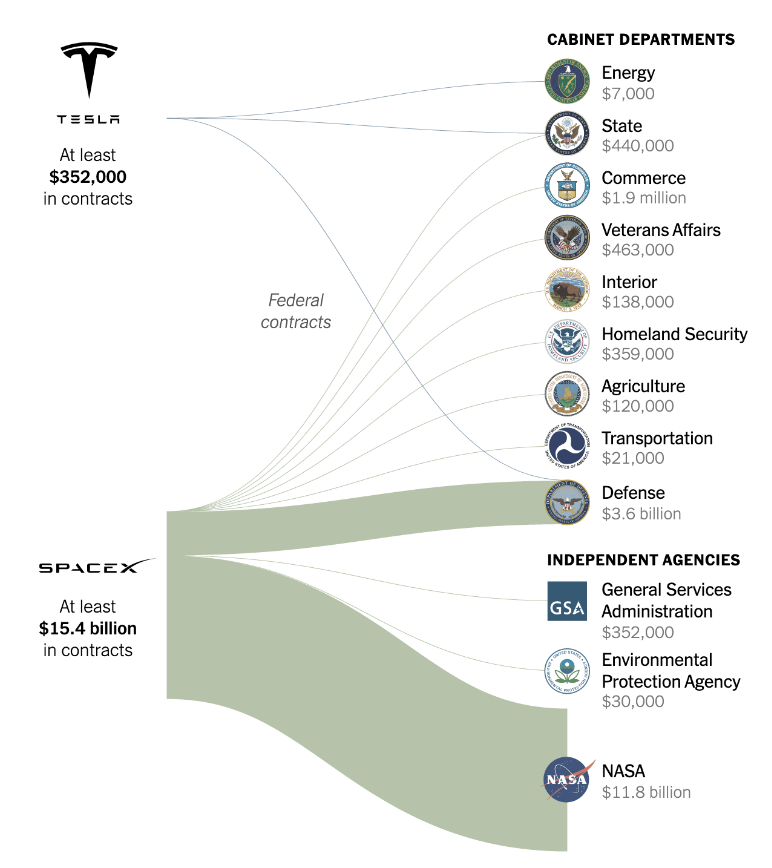
South Korea, which has a free trade agreement with the United States, is no exception.
Currently, the tariff imposed by the United States on passenger cars imported from South Korea is only 2.5%, and an increase to 10% would severely impact South Korean car exports, as the United States accounts for nearly half of South Korean car exports.
Although Trump has never specifically criticized South Koreans, he also believes that South Koreans have always taken advantage of Americans, including exporting Korean electric cars to the United States to reap the locals' wallets and harvesting congressional budgets by building factories locally.
In 2023, South Korean automotive exports to the United States increased by 44.6% year-on-year to $32.2 billion, a record high, with vehicle exports reaching 1.17 million, surpassing the 1 million mark again after 2015. Among them, new energy vehicle exports to the United States increased by 62.3% year-on-year. In contrast, fewer than 20,000 new U.S. vehicles were registered in South Korea last year.
In the first half of this year, South Korea's total exports to the United States reached $64.3 billion, a year-on-year increase of 16.8%, a record high. Among them, the nearly 30% year-on-year increase in automotive exports was the biggest contributor, but it also expanded South Korea's trade surplus with the United States.
According to forecasts by the Korea Institute for International Economic Policy, if Trump is elected and the tariffs on U.S. exports are increased by 10%, the export value, including direct and indirect exports, may decrease by up to $24.1 billion.
From the outside perspective, if the world's largest economy chooses large-scale protectionism, it will become very difficult to persuade many smaller economies not to follow suit. Everything is full of uncertainty. Trump's warnings can be taken literally as real threats, and nothing is certain, but this could be the beginning of a serious trade war.
Benefiting from Trump's return to the White House
The automotive company with the largest stock price increase after Trump takes office is the electric vehicle manufacturer Tesla.
On November 6, local time, Tesla's stock price surged 13%, with a total market value of $913.2 billion, an increase of over $100 billion from the previous day, setting a new six-month high. Tesla CEO Elon Musk's support for Trump was fully reflected in the stock price.
Since July, Musk has invested at least $118 million to support the Trump team. In his victory speech, Trump mentioned Musk 11 times.

The importance of Trump to Musk is self-evident. Even though Trump scoffs at the development of electric vehicles, Musk still chooses to stand on the same side as Trump.
However, it is also possible that Tesla has not benefited from Biden's new energy policies. According to the Inflation Reduction Act, only new energy vehicles assembled by union workers in North America are eligible for tax credits, excluding most of Tesla's vehicles.
Market analysts said that if Trump imposes higher tariffs on Chinese electric vehicle manufacturers after taking office, it may be a good thing for Tesla.
In a report sent to clients last week, Dan Ives, an analyst at Wedbush Securities, pointed out that although Trump's re-election as president will have an overall negative impact on the electric vehicle industry, it may still be a "potential positive" for Tesla.

Ives explained that if the government cancels the $7,500 federal tax credit for purchasing new electric vehicles, Tesla may have a "significant competitive advantage" and regain market share. The hedge fund Ambienta also believes that Trump's tariff policy may benefit Tesla.
In addition to Tesla, Musk believes he is hindered by regulators and that government intervention stifles the development of the technologies he focuses on, such as autonomous driving.
In October this year, Tesla unveiled the Cybercab, a self-driving car without a steering wheel, accelerator, or brake pedals, and announced that it would first promote this Robotaxi model in California and Texas. However, vehicles without a steering wheel, accelerator, or brake pedals are too innovative, and local laws and regulations are still blank. It is uncertain whether Tesla's Cybercab can be formally commercialized.
Fortunately, the Republican candidate supported by Musk, Trump, was successfully elected and won the support of Texas, bringing good news for the landing of Cybercab in Texas.

Texas has also become the base of Musk's business. Tesla's largest Austin factory is located in Texas. In July this year, Musk even relocated the headquarters of his companies, SpaceX and X.ai, to Texas. In addition to the landing of Cybercab, SpaceX and X.ai, which were previously tightly controlled by the government, will receive more support from the U.S. government in the future.
Moreover, Trump hopes to promote the return of shale energy, but considering his overall manufacturing return strategy, Musk's electric vehicles and 4680 self-developed batteries will become policy adherence items. Moreover, in the AI field where Musk is heavily betting, Tesla will also usher in a new round of growth opportunities.
In the important market of China, on the other side of the globe, Tesla will also usher in new changes. During the past four years of the Biden administration, Tesla's relationship with China's industrial chain has been hesitant. After Trump takes office, these tense situations faced by Tesla will change.
Reports have pointed out that Musk has always dreamed of "reshaping" the world according to his own ideas, and Trump may be the "booster" for him to achieve this goal. After Trump wins the election, he may disregard rules to reward those who have helped him in his campaign, such as Musk. Musk may therefore redesign the so-called "American life" according to his own wishes.
Note: Some images are sourced from the internet. If there is any infringement, please contact us for removal.

